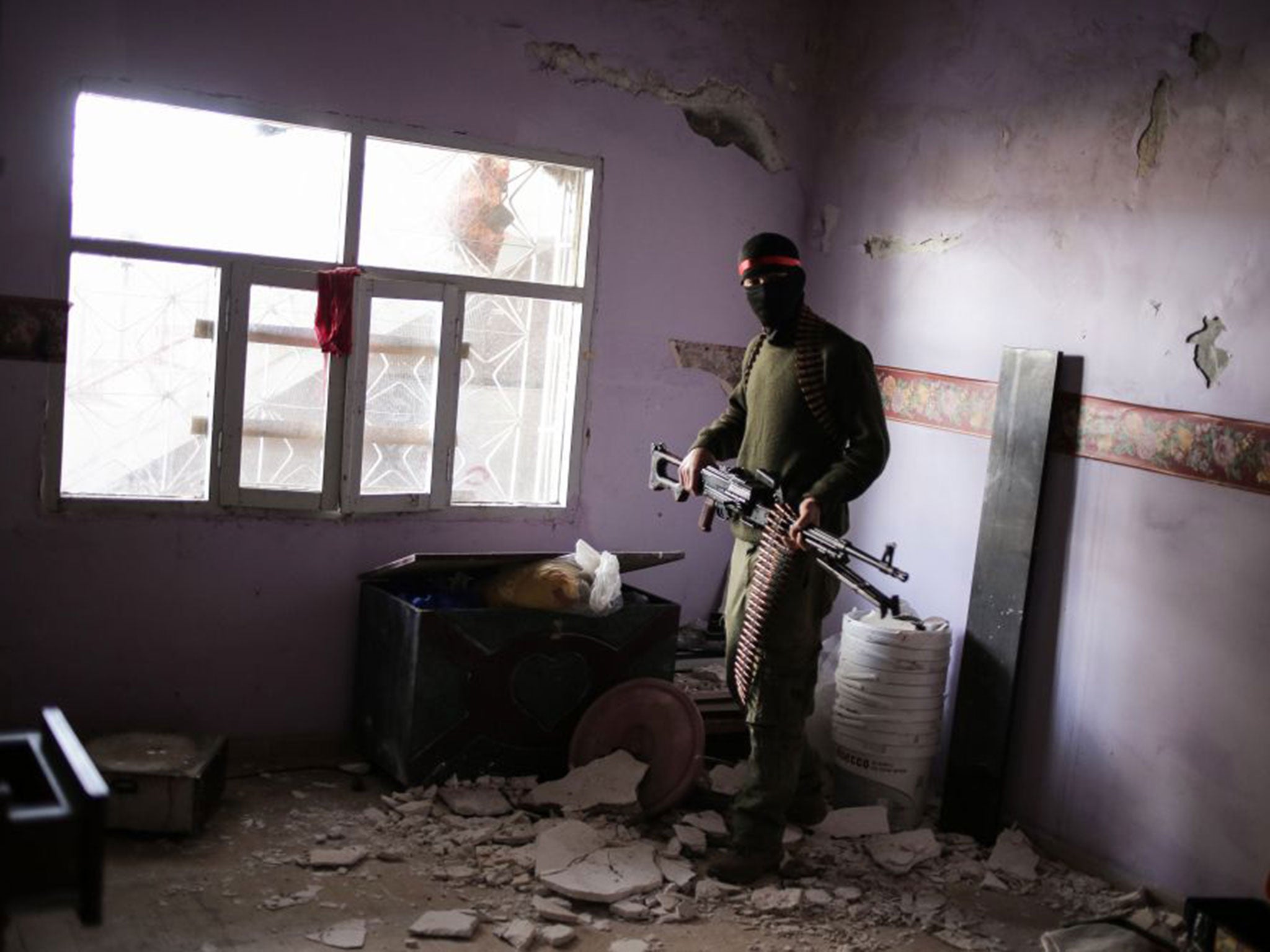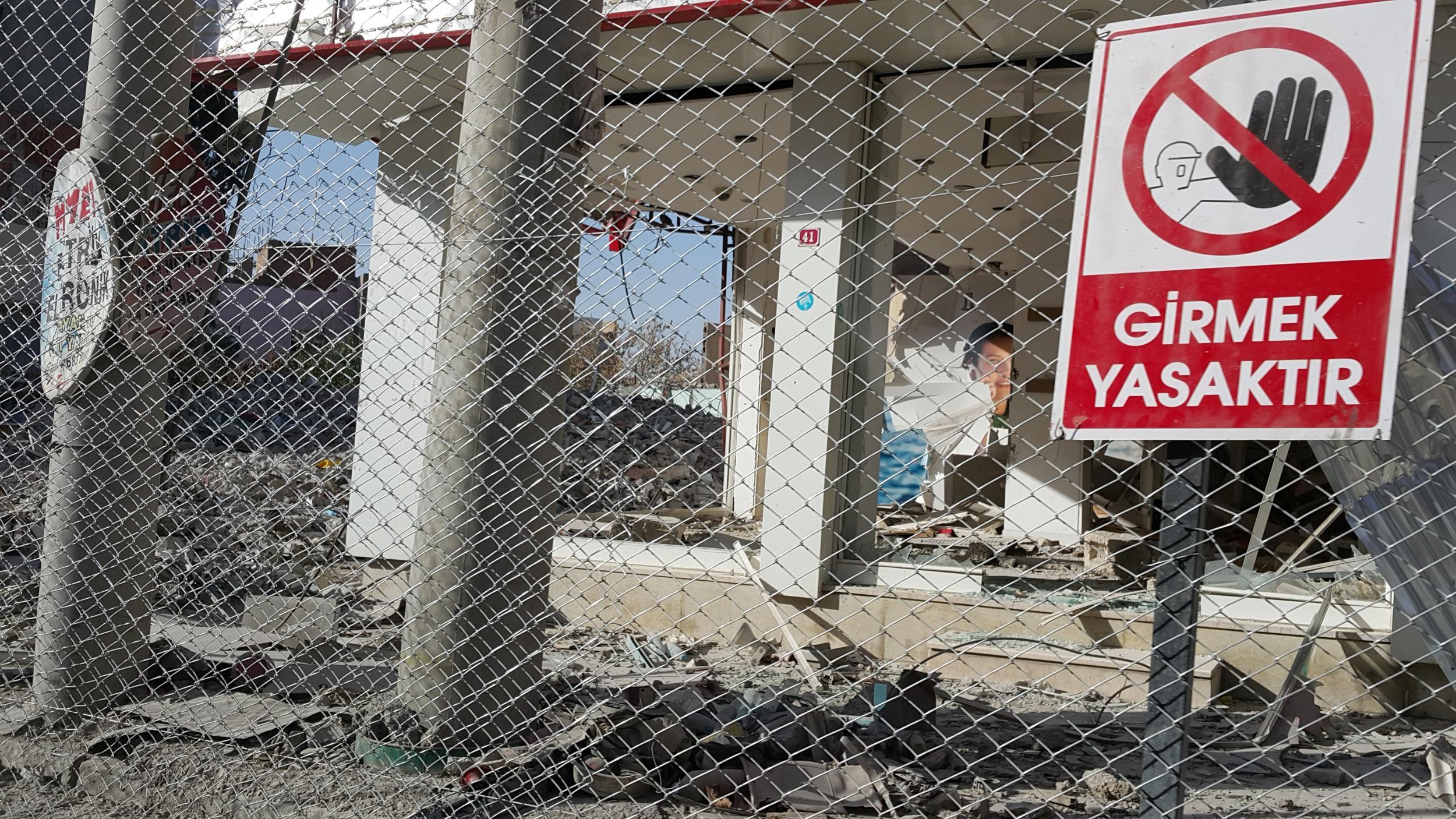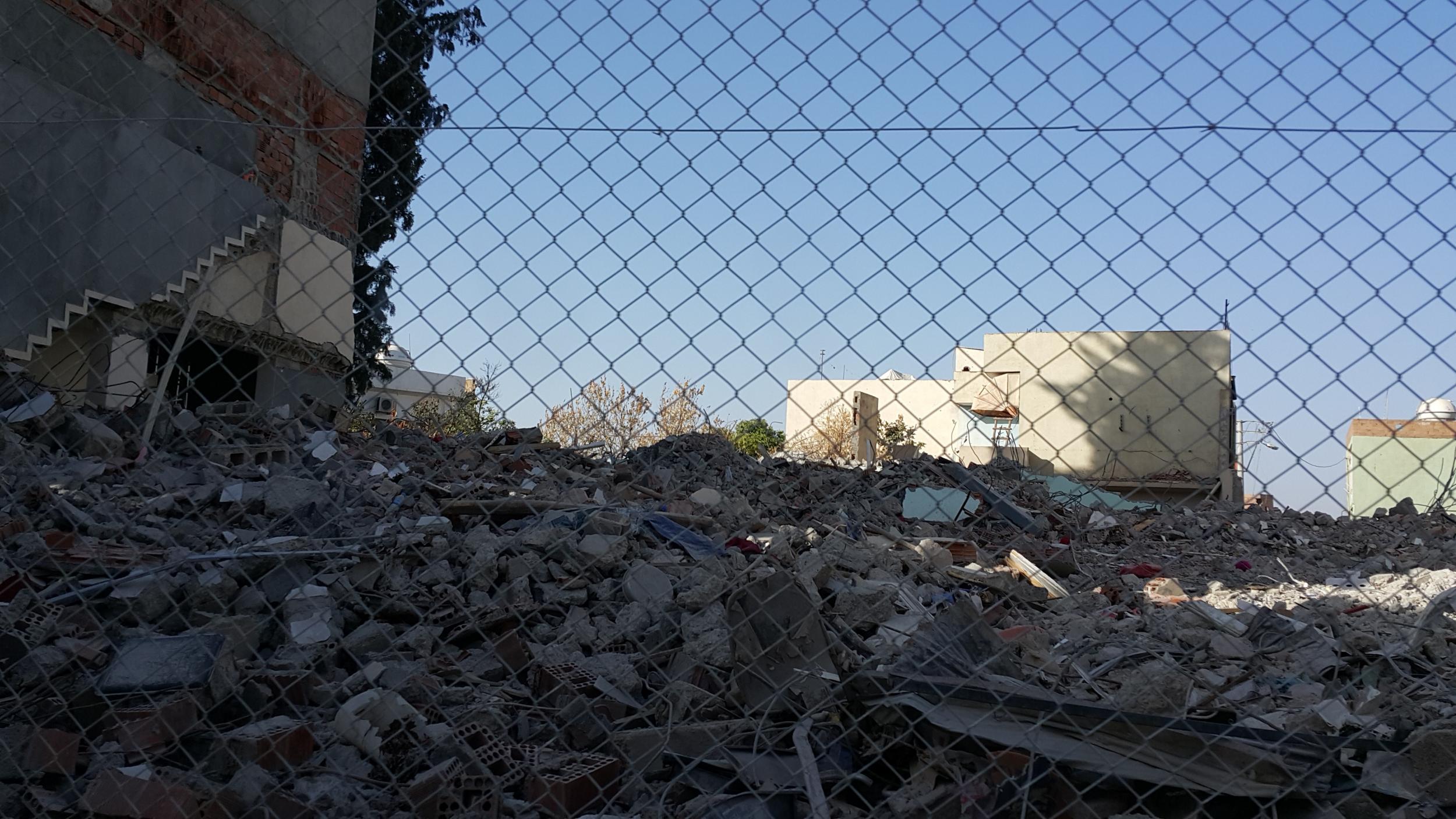Why did President Erdogan restart the battle with the Kurdish PKK? The answer lies in the tale of the failed coup
The democratic Kurdish parties are dwarfed by this battle, which consumed the centre of Diyabarkir last winter and early spring, and then Cizre – and then Nusaybin


They are levelling the battlefield. Behind the chain wire, for mile after mile, you can see the Turkish mobile cranes and trucks destroying what is left of the ruins of Nusaybin – apartment blocks, shops, crushed concrete in the streets. Turkish soldiers and police, on foot and in armoured vehicles, patrol the “forbidden zone”, the wrecked acres of this ancient south-eastern Turkish city which was held for 72 days by the Kurdish PKK last spring.
The Turkish government’s most ferocious enemy, the Kurdish Workers Party and the so-called Kurdish “People’s Protection Units”, which work for them on the Syrian side of the frontier in the twin city of Qamishli, will never be able to return. There will be nothing to return to. You can snatch photographs through the wire, of men working the cranes, of trucks carrying rubble.
“No entrance. Dangerous area,” it says on the red signs attached to the wire. “Forbidden to enter.”
Like so much of the Kurdish-Turkish war in this Kurdish zone of Turkey, the Nusaybin battle, which cost the lives of dozens of Turkish troops and PKK members, has been virtually deleted from recent history.
The Syrian conflict, the sieges of both eastern and western Aleppo by both Syrian government troops and al-Qaeda-cloned rebels – and the massive human and political costs of the refugees they have created – have smothered the terrible Kurdish struggle a few hundred miles away in Turkey.
But in Nusaybin, there is a new reality. Few journalists covered the fighting here last March and April – the New York Times was the exception – but the results are all too obvious today. Not only is about a third of the city utterly destroyed, soon to be level wasteland, but a miles-long wall has now been completed from the old Turkish-Syrian frontier post at Nusaybin/Qamishli to the main highway, which runs west from Nusaybin to the ancient city of Mardin. Armed police and soldiers guard the entrance to Nusaybin although in the rest of the town, shops, schools and offices have reopened.

But who won? The Turkish authorities, of course, claim that they did – although the constant attrition by the PKK elsewhere in these hills suggest otherwise. On my way down the highway from Diyabarkir – and what fine roads the Turks are now building through this land, by the way; perfectly-surfaced boulevards that snake their way through the hot, dark hills, a gift (so they say) from Erdogan’s AKP party – there were plenty of signs that things were not well.
Near Cinar, the road turned to grit and, just to the left, there’s a blasted area of broken trees and smashed glass advertising signs and a pile of broken concrete. This was, until a month ago, a Turkish police station where at least 10 traffic cops were killed when a truck packed with explosives was driven into their compound.
As we continued our journey south, Turkish radio reported an almost identical assault that very morning, on a police and military base in Hakkari to the east – 10 soldiers dead, possibly three civilians. As usual, a suicide squad.
Indeed, it is the PKK’s promiscuous use of suicide bombers and rifle-carrying suicide guerrillas in uniforms – women as well as men – which marks this conflict so intensely as a reflection of the Islamist version of an anti-imperialist struggle.
No Islamists here, however. Later that same morning, the police found two PKK women in a hidden compartment of a mini-bus (specially constructed with a hiding-place, it seems) heading for the same road we were driving, on their way in the other direction towards Diyabarkir. The PKK prefer main roads – an odd choice for a ruthless guerilla army which might move more easily at night – but a swift one for constant military assaults. The Turkish police know this, too.
Maybe that’s why the army doesn’t bother to man every frontier post along the Syrian border. They run, these great iron pill boxes on stilts, for miles on both sides of Nusaybin, linked by barbed wire and mine fields and big new military bases set back from the highway. You can glimpse the occasional armoured vehicle half buried in the fields, before the distant Syrian villages. But the folds of barbed wire are in some cases rusted old posts, abandoned, a “Great Escape” back-lot minus Steve McQueen after they’ve taken away the Wehrmacht and the Swiss Alps in the background.
This modern war raises dangerous questions. Take my well-educated Kurdish driver (anonymous, almost needless to say). “We know (President Recip Tayyap) Erdogan deliberately destroyed our peace process with the Turks,” he says. “We understand the kind of nationalism he represents and the kind of religiosity he represents. But we ask at the same time, ‘What on earth does the PKK want?’ Do they have any policy? Do they really think they are going to win against the Turkish army? Yes, they will kill soldiers and police, and then our towns will be destroyed and for what? Is there a PKK plan? I don’t think so. They breathe through war, it is a lung for them, and so they are kept alive.”
It’s a grim commentary to follow on our journey across south-eastern Turkey – and it probably has truth on its side. The democratic Kurdish parties are dwarfed by this battle, which consumed the centre of Diyabarkir last winter and early spring and then Cizre and then Nusaybin. But there is a grim, unspoken underside to this struggle which Turks as far away as Istanbul will speak of with resignation.

For was this useless battle, with its huge military casualties, not the very detonation that lay behind last July’s failed coup against Erdogan? Forget the exiled-Gulen and his supposed clerical minions. Everyone knows that this was, in effect, a military-inspired attack on the government, a mini-revolution, if you like. And in the months that preceded the failed coup, the army was suffering and fighting in a war which was totally unnecessary – one which had been unleashed for totally political reasons by the breakdown of the Turkish-Kurdish “peace process”.
What was this battle intended to do for Turkey? Or for the army, which might also be led across the border into Syria – as indeed it has since been?
For, just as the Kurds are asking what plans the PKK have for Turkish Kurdistan, so the army must have been wondering what plans Erdogan had for it? Why was it suddenly called upon to fight last winter and spring, all over again, the forces of the PKK?

We still do not know the answer to this question. But the answer must be intimately linked to the causes of the attempted July coup.
Just outside Nusaybin, written 10 feet high in stones below a Turkish army artillery pit, I noticed the legend: “The border is our honour”. But is that really what it is about? A much dishonoured border, if you ask me.
Bookmark popover
Removed from bookmarks